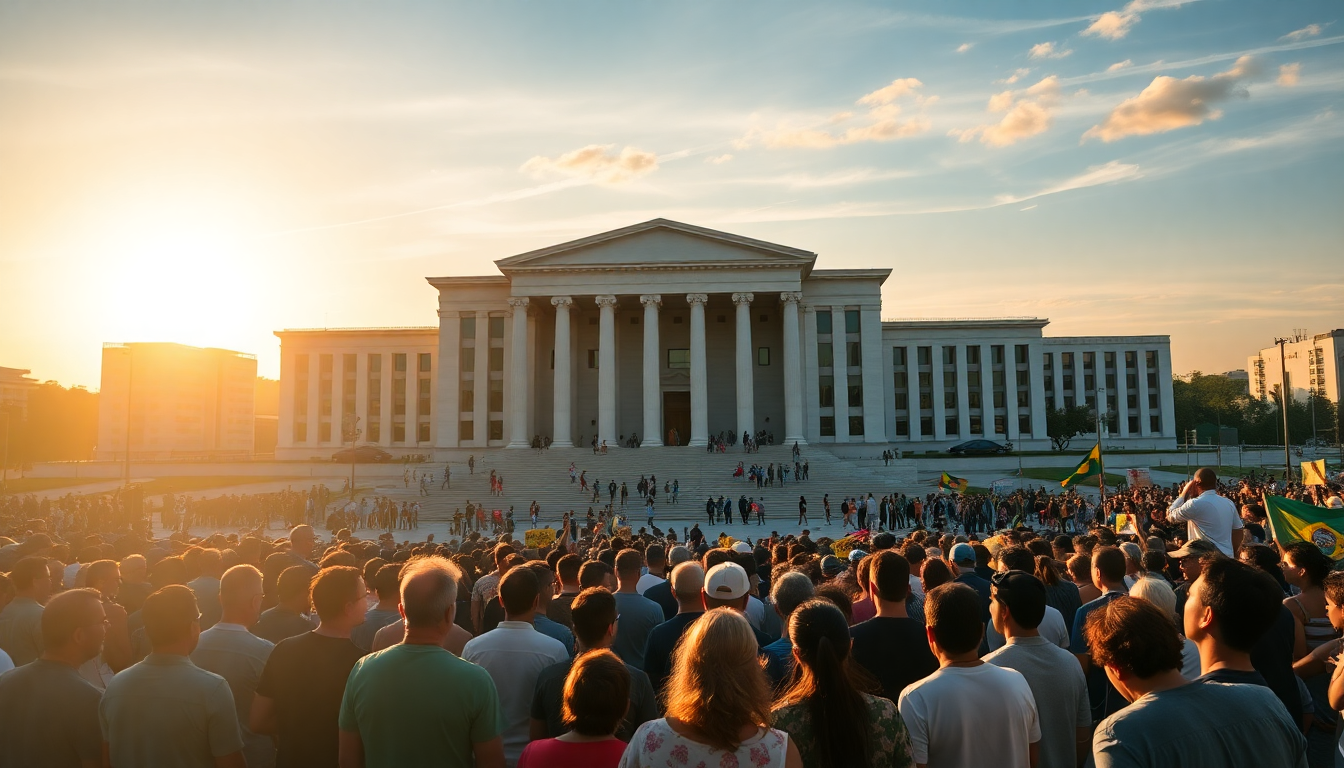Table of Contents
The trial of former Brazilian President Jair Bolsonaro has turned into a major talking point, capturing the attention of both the nation and the world. As the Brazilian Supreme Court steps into the spotlight, the stakes of this legal showdown go far beyond the courtroom drama. With serious allegations of an attempted coup following his loss in the 2022 elections, Bolsonaro’s trial could redefine Brazil’s political landscape for many years to come. And let’s not forget, the potential sentences could stretch over 40 years! This isn’t just a legal issue; it’s a crucial test for Brazil’s institutional integrity and its very sovereignty.
The backdrop of the trial
Justice Alexandre de Moraes is leading the charge in this high-profile case, highlighting the need for national sovereignty and institutional bravery. His words hit home in a country where political tensions often mesh with legal battles. Bolsonaro, who once shared a close bond with former U.S. President Donald Trump, has even faced sanctions from the U.S. under the Magnitsky Act. Talk about adding another layer of complexity! The political spectacle surrounding the trial is only heightened by external pressures, especially from Washington, which has imposed tariffs on Brazilian goods in a broader geopolitical chess game.
Eduardo Bolsonaro, Jair’s son, has emerged as a prominent voice in this unfolding drama, even moving to the U.S. to seek support from the Biden administration. His warnings about potential sanctions tied to the trial show just how domestic legal challenges can ripple into international diplomacy. This trial is far from just about Bolsonaro; it represents the heart of Brazil’s current political climate, where legal issues intertwine with national identity and sovereignty.
The potential outcomes and implications
The implications of this trial are nothing short of monumental. If Bolsonaro is found guilty, it could set a new standard for how political leaders in Brazil are held accountable, fundamentally altering the relationship between law and politics. This trial serves as a litmus test for the strength of Brazil’s democratic institutions, as they grapple with the balance between political loyalty and judicial independence. Justice Moraes’s call for “institutional courage” speaks volumes—it’s about a judiciary willing to uphold the law, even when faced with external pressures, which is vital for preserving democratic integrity.
But there’s more at stake here. The outcome of this trial could sway public opinion and influence voter behavior in upcoming elections. With the threat of harsh penalties hanging over Bolsonaro, the political conversation in Brazil could shift dramatically. Both supporters and detractors are watching closely, as the trial unfolds in a society already wrestling with division and political strife.
Looking ahead: Predictions for Brazil’s political future
As the trial unfolds, it’s crucial to think about what this means for Brazil’s political future. We could be on the brink of a significant shift in power dynamics, and the outcomes might reshape the political landscape entirely. If Bolsonaro is convicted, it might empower opposition parties and reform movements, sparking a reassessment of political alliances and strategies. On the flip side, an acquittal could energize Bolsonaro’s supporters, solidifying his influence in Brazilian politics.
In conclusion, the trial of Jair Bolsonaro is more than just a legal battle; it’s a pivotal chapter in Brazil’s story that highlights the ongoing struggle for accountability and effective governance. Both national and international eyes are on this trial, eagerly awaiting not only the immediate fallout but also the long-term ramifications for Brazil’s democratic framework and political identity. Can you feel the tension in the air? This is a moment that could change everything.


